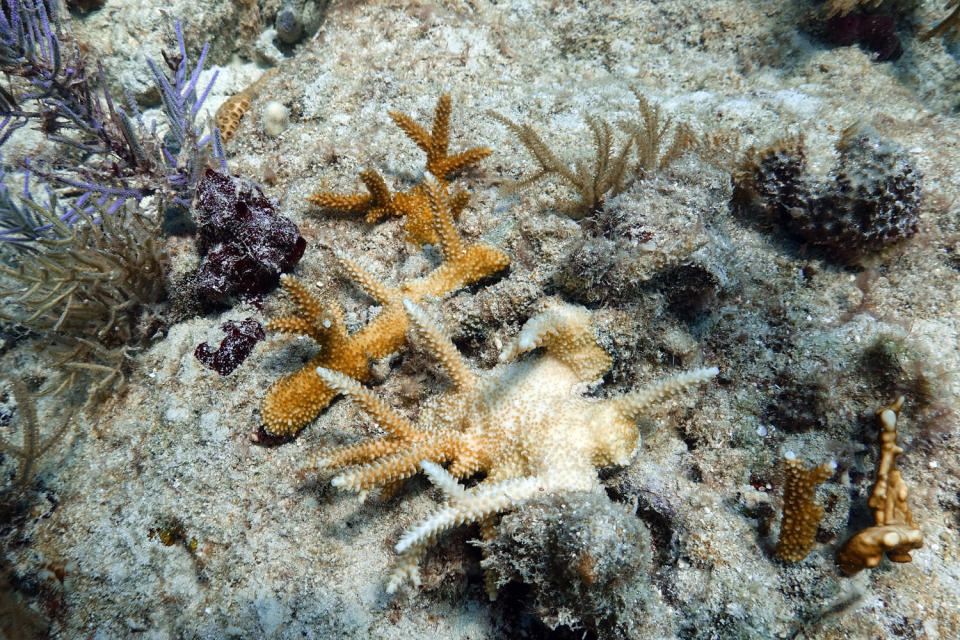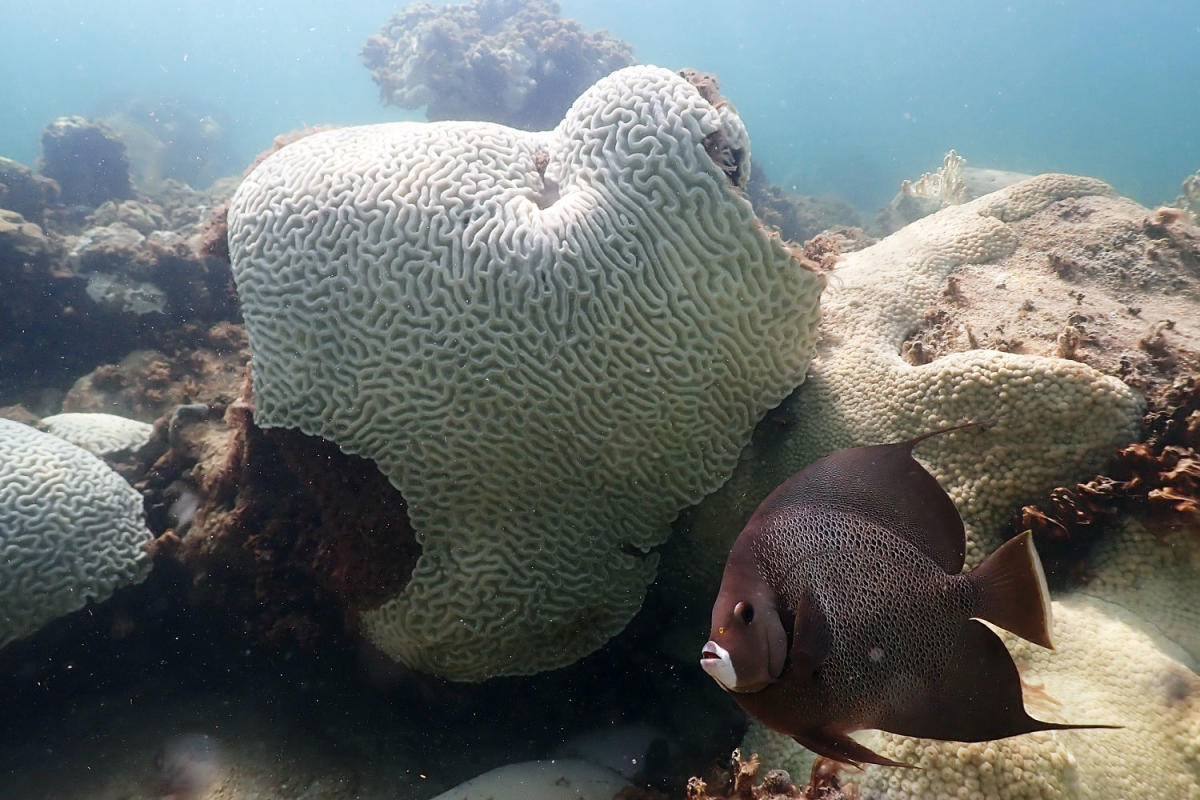Unusually warm waters in the Caribbean Sea are fueling what some scientists say is the region’s worst episode of coral bleaching ever recorded — yet another worrisome development in what has been an off-the-charts year of warmth for the world’s oceans.
Reefs in and around the Caribbean are experiencing high levels of heat stress, according to researchers at the National Oceanic and Atmospheric Administration. This has led to concerns that widespread bleaching could lead to a catastrophic die-off of corals in the area. The situation follows one of the worst bleaching events ever seen off Florida.
“Florida is just the tip of the iceberg,” said Derek Manzello, a coral reef ecologist and the coordinator of NOAA’s Coral Reef Watch Program. “The entire Caribbean right now is bleaching. If you picked a random spot on the map in the Caribbean and jumped in the water, you’re going to see bleached corals.”
The warm conditions are expected to persist in the Caribbean Sea in the coming weeks, coinciding with the transition from winter to spring in the Southern Hemisphere. This could mark the beginning of a global bleaching event, encompassing widespread coral bleaching in the Atlantic, Pacific, and Indian Oceans, according to Manzello.

The last global bleaching event occurred from 2014 to 2017, during which El Niño conditions were present, intensifying the effects of climate change and raising average air and sea temperatures. Ian Enochs, a research ecologist at NOAA’s Atlantic Oceanographic and Meteorological Laboratory, expressed surprise at the intensity and duration of this year’s marine heat waves, particularly off Florida.
Heat-induced bleaching occurs when corals expel the tiny photosynthetic algae that reside in their tissues as a stress response to abnormal conditions. This results in the corals turning white. While bleaching itself doesn’t necessarily cause corals to die, it weakens the reefs and makes the marine organisms more susceptible to disease.
Sea surface temperatures around the world


